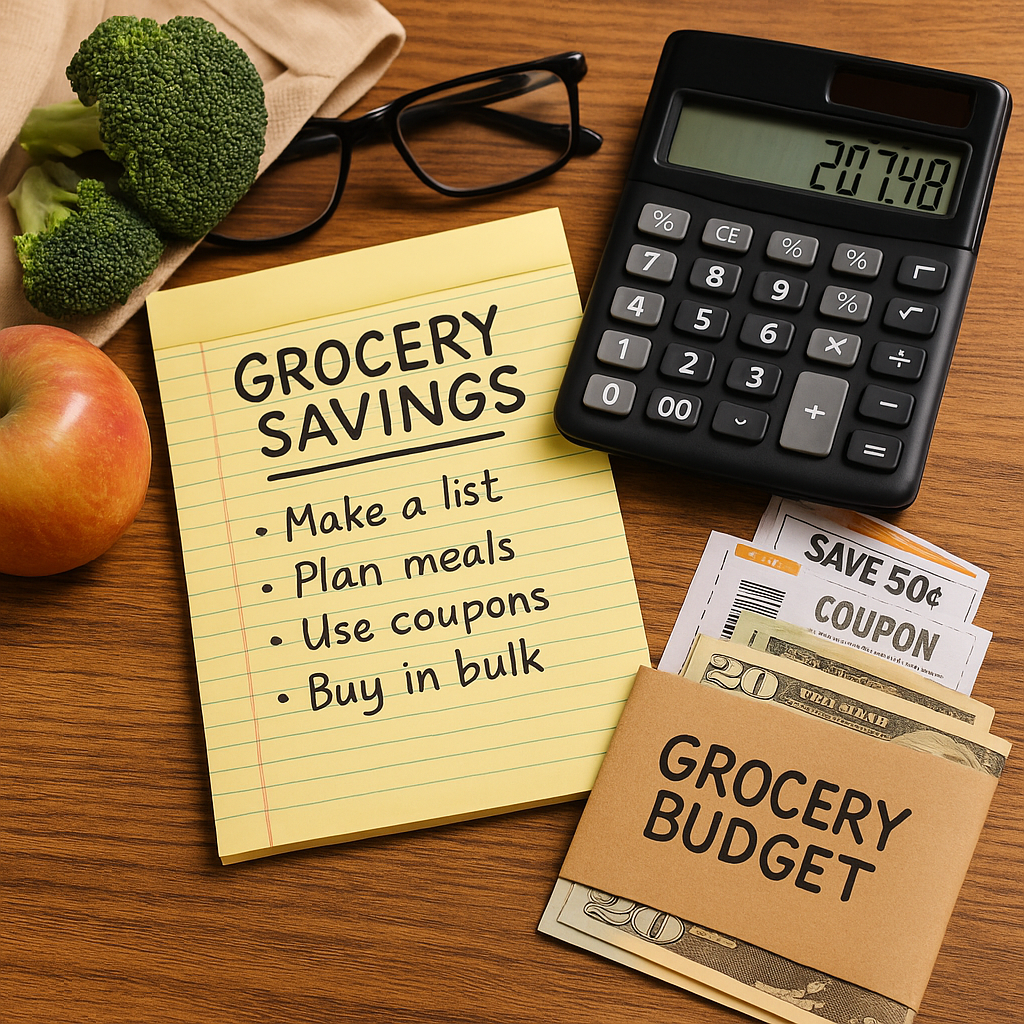Groceries are one of the biggest monthly expenses for most households—but they don’t have to break your budget. With some smart strategies, you can cut your grocery bill significantly without compromising on quality or nutrition.
In this article, you’ll learn practical ways to spend less at the supermarket, avoid waste, and still bring home everything your family needs.
Why Grocery Spending Adds Up So Fast
Many people overspend at the supermarket due to:
- Impulse purchases
- Lack of planning
- Buying name brands out of habit
- Shopping while hungry
- Ignoring unit prices and bulk deals
With small adjustments, you can save hundreds of dollars per year—even on healthy, high-quality foods.
Tip 1: Make a Grocery List and Stick to It
Planning is key. Before heading to the store:
- Check what you already have at home
- Plan meals for the week
- Write a list based on your meal plan
Avoid “just browsing”—that’s when most unnecessary spending happens.
Bonus Tip:
Organize your list by category (produce, dairy, frozen, etc.) to save time and avoid backtracking.
Tip 2: Set a Budget for Each Grocery Trip
Decide how much you can spend before entering the store. Use cash or a prepaid card if you need extra discipline.
Example:
If your grocery budget is $300/month, and you shop weekly, aim to spend no more than $75 per trip.
Tip 3: Shop with a Full Stomach
Hunger leads to impulse buys—especially snacks and treats. Always eat before you shop to avoid unnecessary temptations.
Tip 4: Compare Unit Prices, Not Just Shelf Prices
Bigger packaging doesn’t always mean better value. Always check the unit price (e.g., price per ounce or liter) to see which option truly costs less.
Many stores list this on the shelf label—but bring a calculator just in case.
Tip 5: Buy Generic or Store Brands
Most store-brand products offer the same quality as name brands for 20% to 40% less.
Try switching for:
- Canned goods
- Pasta and rice
- Dairy and eggs
- Cleaning products
You likely won’t notice a difference—except in your wallet.
Tip 6: Use Coupons and Loyalty Programs (Strategically)
Coupons and apps can save real money, but don’t let discounts tempt you into buying what you don’t need.
Use:
- Digital store apps (Target, Walmart, Kroger)
- Cash-back apps like Ibotta or Fetch
- Manufacturer websites for printable coupons
Join store loyalty programs to access member-only deals and rewards.
Tip 7: Shop Once a Week (or Less)
The more often you go to the store, the more likely you are to overspend. Reduce temptation by shopping once a week or every 10 days.
Plan ahead to avoid “emergency trips” for missing ingredients.
Tip 8: Cook More, Waste Less
Cooking at home is cheaper than eating out—and helps reduce food waste. Make meals in bulk and store leftovers for quick lunches or dinners.
Bonus Tip:
Build a “leftover night” into your weekly meal plan to clear out the fridge and avoid spoilage.
Tip 9: Buy in Bulk—But Only What You’ll Use
Buying in bulk saves money only if you actually use it. Great bulk items include:
- Rice, beans, oats
- Toilet paper and paper towels
- Frozen vegetables
- Canned goods
Avoid buying perishables in large quantities unless you’re freezing or using them soon.
Tip 10: Choose In-Season Produce
Fruits and vegetables in season are cheaper and fresher. Off-season produce is often imported, which adds to the cost.
Check local farmer’s markets or discount produce bins for fresh, low-cost options.
Final Thoughts: Small Habits = Big Savings
You don’t need to change your entire diet or settle for low-quality food to save money at the supermarket. With a little planning and a few new habits, you can cut costs without cutting corners.
Start with one or two tips this week. Over time, these savings will grow—and your bank account will thank you.


Sem comentários